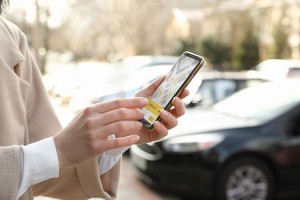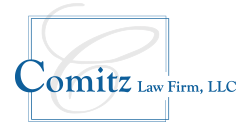 Ridesharing services, such as Uber and Lyft, offer more convenience. Conversely they can also lead to more accidents and create more complexity in bringing a claim for such accidents.
Ridesharing services, such as Uber and Lyft, offer more convenience. Conversely they can also lead to more accidents and create more complexity in bringing a claim for such accidents.
More Accidents
According to a study from the University of Chicago and Rice University, ridesharing services have led to a 3% increase in traffic deaths in the United States since 2011. A 2021 report indicated that an astonishing 25% of all motor vehicle collisions in Boston involved Uber and Lyft drivers. (This in spite of the fact that rideshare vehicles account for just 6% of vehicle miles traveled across the country).
Rideshare accidents can involve a number of factors, including but not limited to:
- distracted driving
- driving in unfamiliar areas
- inadequate car maintenance
- driver inexperience
- speeding
- driver fatigue
More Complexity
In accidents involving two private vehicles, liability is fairly easy to determine. Can the same be said about an accident involves a rideshare vehicle where you are the passenger? When a rideshare vehicle is involved, the complexity of determining liability is dramatically increased.
Fortunately Attorney Jonathan Comitz and his team at Comitz Law can call upon their experience and knowledge to guide you through the complexities.
Companies which provide rideshare services strive to avoid liability whenever possible. They position themselves as technology companies, not transportation providers. Their drivers are not classified as employees, but rather as independent contractors. What’s more, rideshare drivers typically have to use their own vehicles.
Unlike common carriers such as taxis and busses, ridesharing companies are not subject to strict licensing or training requirements. They are relatively unencumbered by regulatory oversight. As a result of their structure, ridesharing companies can sometimes shift blame away from themselves and onto the driver.
Initially Uber did not provide insurance coverage. So the burden would typically fall entirely on the driver. Today, both Uber and Lyft have liability coverage systems that set forth the compensation that may be provided to those who have been injured in Uber/Lyft accidents. The level of coverage is based on what phase the rideshare process is in when the accident occurs.
Period 0: When an Uber/Lyft driver is involved in an accident prior to having logged into the rideshare app, Uber/Lyft will not provide coverage. (The driver’s personal auto insurance might apply).
Period 1: When the Uber/Lyft driver is logged into the app but has not accepted a ride and is involved in an accident, the company will provide liability coverage of up to $50,000 per person injured in the accident, $100,000 total injury liability per accident, and $25,000 property damage liability.
Period 2: When the driver is involved in an accident after accepting a trip and is en route to the passenger’s location, Uber/Lyft’s liability coverage increases to $1 million.
Period 3: When the passenger is in the rideshare car at the time of the accident, Uber/Lyft’s liability coverage is up to $1 million as well as additional limited coverage for damage to the driver’s car and the uninsured motorists’ coverage.
If you were injured by a rideshare driver who isn’t using the Uber or Lyft app at the time of the accident, you’re limited to filing a claim with the driver’s personal car insurance.
In the event that the driver only has basic coverage, there may not be enough money to pay your medical bills. This means you may have to use your own insurance.
Pedestrians, bicyclists, and other motorists hit by a negligent Pennsylvania rideshare driver who is not in the process of completing a designated ride may face significant hurdles when pursuing a claim for compensation against the driver.
There are often multiple parties involved in a rideshare accident case. They can potentially include:
- the driver
- passenger(s)
- non-rideshare motorist(s)
- pedestrians
- a municipality
- vehicle manufacturer
- insurance companies
As we’ve illustrated, rideshare accident claims can present a substantial challenge that requires quality legal representation.
If you’ve been injured in a rideshare accident, call Comitz Law at 570-829-1111 or email info@comitzlaw.com. We can help.


